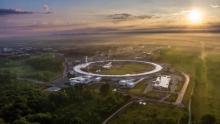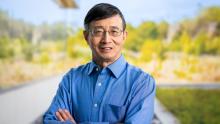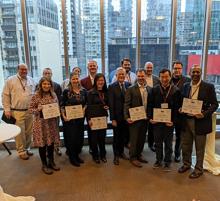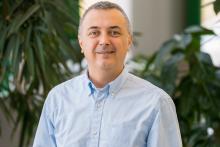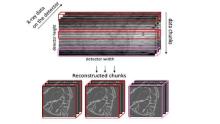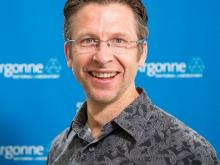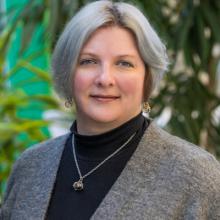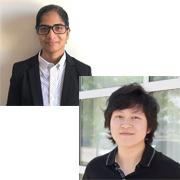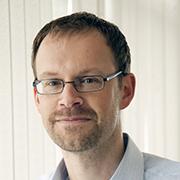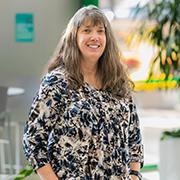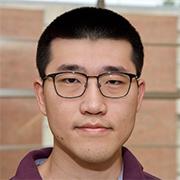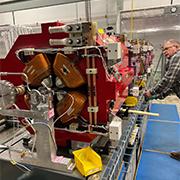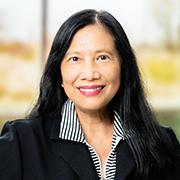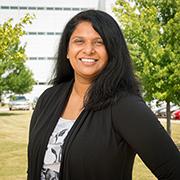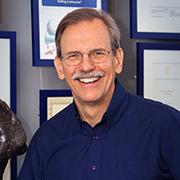News Feed - APS/User News
With the start of the construction period, the Advanced Photon Source is now only a year away from re-emerging as a world-leading X-ray light source. Its brighter beams will lead to new discoveries in energy storage, materials science, medicine and more.
Cai from Argonne’s X-ray Science division recognized for his commitment and advances in beamline science, most notably X-ray diffraction.
Two X-ray Science Division group leaders, physicist Suresh Narayanan and principal computer scientist Nicholas Schwarz, have completed the Strategic Laboratory Leadership Program (SLLP).
As the APS Upgrade’s supply chain coordinator, Stankovik conducts detailed planning and forecasting to ensure all the materials are in place.
Argonne National Laboratory has partnered with SLAC National Accelerator Laboratory and Brookhaven National Laboratory to develop a common platform for the submission and management of user scientific proposals.
Scientists at the Advanced Photon Source are exploring ways to analyze X-ray data faster and with more precision. One new software package called TomocuPy has shown to be up to 30 times faster than the current practice.
The Department of Energy (DOE) has highlighted XSD physicist Volker Rose, recipient of a 2012 Early Career Award, on the DOE website. The article focuses on his X-ray microscopy research since receiving the award.
As the environment, safety and health lead for the APS Upgrade, Freedman knows that the most important part of the project is the people who make it happen.
The APS/CNM Users Meeting will feature plenary sessions, workshops and trainings, a poster session, and more. The program will be virtual, with the exception of an in-person symposium and banquet.
Anakha Babu and Yanqi (Grace) Luo, postdoctoral appointees at the U.S. Department of Energy’s Advanced Photon Source, are two of nine postdocs to earn an Argonne National Laboratory 2022 Postdoctoral Performance Award.
Stefan Vogt of the U.S. Department of Energy’s Advanced Photon Source has been selected as 1 of 3 Argonne National Laboratory researchers to participate in the DOE’s Oppenheimer Science and Energy Leadership Program.
Argonne’s Aurora supercomputer and upgraded Advanced Photon Source will be powerful tools for discovery. Together, they’ll form a scientific super merger: The combined data collection and computing power will advance discovery time and unlock new science.
As a safety systems interlocks engineer, Anne Boron oversees the safety of researchers at the Advanced Photon Source.
Xuanyi Zhang of North Carolina State University is the first-place winner of the 2022 APL Materials Excellence in Research Award competition for a paper based on research at the Advanced Photon Source.
Assembling the new storage ring for the Advanced Photon Source is like putting a puzzle together.
Looking for a role that could let her creativity and innovation shine, Maria O’Neill joined the U.S. Department of Energy’s Argonne National Laboratory as a mechanical designer in 2013. Now she's designing vacuum-related components for the major upgrade of the Advanced Photon Source at Argonne.
When the IDEA beamline was built and put into operation at the Advanced Photon Source in early 2020, a small team of scientists recognized a unique opportunity to evaluate the beam itself, as well as conduct other high-impact research.
University of California, Santa Cruz Professor Dongwook Lee has won a three-year, $1.1 million grant from the U.S. Department of Energy, which will fund his research on improving computer models for safety mechanisms within particle accelerators. For this project, Lee will collaborate with scientists at the Advanced Photon Source at Argonne National Laboratory.
Nena Moonier to Represent APS at the Leadership Academy for Women in Science and Engineering Program
Nena Moonier, Experimental Facilities Operations Group Leader in the Advanced Photon Source Engineering Support Division, has been selected as a participant in the inaugural Leadership Academy for Women in Science and Engineering (LAWISE) program.
Advanced Photon Source user Timothy A. Springer (Boston Children’s Hospital/Harvard Medical School) is one of three recipients of the 2022 Albert Lasker Basic Medical Research Award for discoveries concerning the integrins—key mediators of cell-matrix and cell-cell adhesion in physiology and disease.

